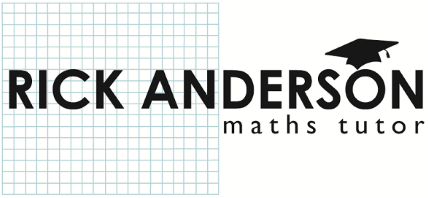UKMT is the United Kingdom Maths Trust which on foundation in 1996 brought together a trio of similar pre-existing Maths challenges at three different age groups, the Junior, Intermediate and Senior tests. Dr. Tony Gardiner is the name most associated with driving these competitions forward and now tens of thousands of pupils a year take part in the three competitions, which cover Years 8 and below, Year 11 and below, and Year 13 and below.
The format is very similar in each – 25 questions of increasing difficulty each with 5 multiple choice answer options. Clearly the standard of questions increases through the age groups but not in the way you might think. I have studied the Intermediate and Senior papers in particular and the syllabuses do not vary greatly, rather it is largely the same topics, but with more challenging questions. You will see in the appendix my research,
that I have collated from past UKMT papers, the GCSE and A-Level individual topics that students need as a minimum to know to have a good chance of success in the UKMT competitions..
In order of most frequent first, Geometry, Number, Algebra, Trigonometry, Statistics, Probability (counting outcomes) and finally Ratio are the topics featured. You might think that calculus is included in the Senior challenge, but no, as I say, it sticks largely to GCSE topics but with more challenging questions, and set in a particular style which after a while becomes familiar. Both competitions challenge pupils in two ways especially; working at speed and doing problem solving, which is something the UKMT wishes to encourage.
The benefits to pupils are of the following kind. Most obviously, more exposure to subjects which will feature in their GCSE and A Level exams – for instance Pythagoras and Similarity feature extensively. Second, learning to work fast in terms of reading a problem, understanding what to do and executing the solution all within a few minutes (and without a calculator, thus developing mental arithmetic skills). Third, managing an exam – how should I proceed if my answer is not listed, when guessing a wrong answer may carry penalties, and which if any questions should be missed out? Fourth, the problems help you to think in a different way about Maths, imaginatively. out of the box if you like. And lastly, especially for those who are successful, it can add to your UCAS personal statement.
Just entering shows ambition, and there are further possible rewards for high scores, such as Gold,Silver,Bronze, Kangaroo (I’ll let you research that one!), and a national olympiad. There is also a team competition, which I am pleased to say my old school Newcastle Royal Grammar School won a few years back.
Do you have to be really good at school Maths for high scores? Well it helps of course, but the questions do encourage intuition and feeling for Maths rather than (just ) rewarding technical revision.
Shown below are some typical geometry questions, then number questions, from each of the three age group competitions, showing yes the progression and but also continuity. You will see that knowing some Maths formulae and definitions is a minimum essential – but that alone does not guarantee success, as intuition and for instance ability to quickly sketch, plan solutions, create equations or compile tables is needed too.


Typical medium difficulty UKMT Number questions
How do you enter? Well, the school usually helps with the administration. Remember the Junior, Intermediate and Senior competitions are typically in April, February and November respectively, with deadlines for entries a few weeks before each. A practice really is needed!
For tutors the benefit of helping pupils is that most tutors will have to stretch themselves to accurately and quickly answer the difficult questions; often there is more than one way to approach them and the challenge is to see the relative benefits of different methods; and learn to think in different ways about Maths problems beyond the confines of conventional exam requirements. My own approach to coaching UKMT is to start by going through topic by topic and set questions relevant to that subject from both UKMT and also GCSE past papers; and once any shortfalls are ironed out I begin to set full papers at first without time limits and finally within time constraints. Although model answers are available, they are sometimes a bit wordy, and I try to write out the solutions myself to force me to think through the problem and anticipate how a pupil may best understand an answer. I give tips on both managing the exam and also question-specific explanations and tips – for instance I point out that certain types of question such as circle/square combinations occur year after year.
In summary UKMT is a great initiative which encourages good Maths practices and techniques and I enjoy greatly helping pupils to become familiar with the challenging papers. More information is available through UKMT’s website
Appendix 1. List of Maths topics you need to know for Intermediate and Senior UKMT

